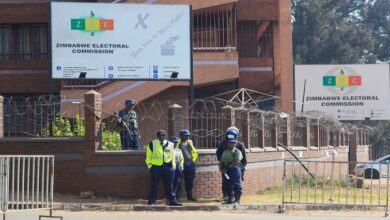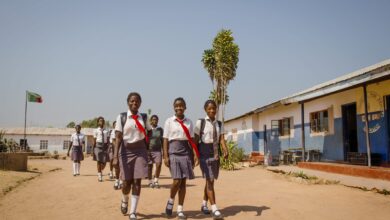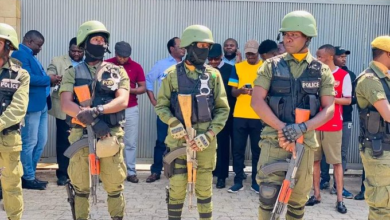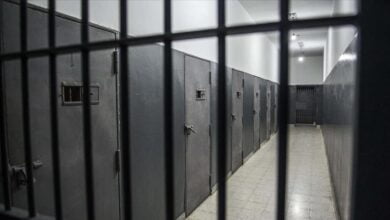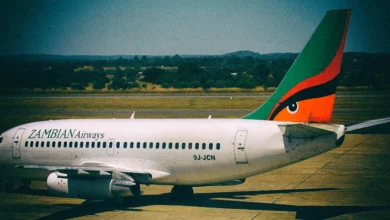
Twenty-seven bodies, believed to be of Ethiopians or Somalis, have been found dumped along a road in the Meanwood Khosi Area in Lusaka, Zambia, after apparently suffocating in a container used by human traffickers.
While their nationalities, identities and intended final destination are still to be established, it is believed the victims were in transit through Zambia en route to South Africa where they intended to seek asylum.
The bodies were discovered in the early hours of yesterday morning by security guards and a neighbourhood watch group.
This comes as Zimbabwean authorities are still investigating the four bodies of foreigners, also believed to be Ethiopians or Somalis, found dumped in Mudzi last month.
Zambia’s deputy police spokesperson Danny Mwale was quoted saying one person was found alive and was rushed to the University Teaching Hospital.
Mr Mwale told ZNBC News that most of the dead could be from Somalia and Ethiopia.
Zambian police had since launched investigations to ascertain what really happened, but suspected the 27 could have suffocated while in transit. The bodies were taken to a hospital mortuary.
While there are no firm facts, it is suspected that human traffickers wanted to get the group into Zimbabwe as a transit country to South Africa.
Police national spokesperson Assistant Commissioner Paul Nyathi said they were yet to get a report from their Zambian counterparts on the possible destination of the foreigners.
Zimbabwean police are yet to make a breakthrough in their quest to identify of the four foreigners whose bodies were found near Suswe Pass in Mudzi last month.
The cause of their death remains unknown, but they are suspected to have suffocated in a container used by human traffickers before their bodies were dumped at the side of the Harare-Nyamapanda Road.
The bodies were taken to a hospital in Mudzi where police took their fingerprints.
With the help of Interpol and police now hope to identify the bodies which are still at the hospital mortuary.
Investigations revealed that the four were all foreigners since police discovered some foreign contacts and other valuables that the deceased were in possession of when they were found.
Last month, ZRP engaged Interpol to also assist with investigations.
The bodies were discovered in Mudzi near the 174km peg along the Harare-Nyamapanda Road.
Recently police arrested more than 171 foreigners who had entered the country illegally on separate occasions.
Most of the foreigners, who had no travel documents, were arrested while being travelling buses in Gweru and Murehwa.
In Murehwa, police intercepted 86 foreigners, while in Gweru, another 82 were arrested. Three others were arrested in Murehwa while they were looking for transport to Nyamapanda Border Post.
Investigations revealed that these foreigners were being transported to South Africa.
They are all still assisting police with investigations awaiting deportation once all the procedures have been followed.
Recently, Information, Publicity and Broadcasting Services Minister Monica Mutsvangwa said security had been tightened at all border points as Government seeks to end unauthorised crossings of organised criminal gangs likely to be ferrying child victims of human trafficking.
Investigations into several child trafficking cases were also underway to ensure those caught were adequately punished.
Interpol recently started helping law enforcement agents in Zimbabwe to dismantle human trafficking networks by promoting international police co-operation and the use of the organisation’s policing capabilities.
By engaging in these operations, member countries work in close partnership in ongoing criminal investigations, strengthening their controls to identify victims of trafficking in borders and hotspots.
Interpol said human trafficking constituted a modern form of slavery, denying people their dignity and basic rights.
It is a crime that knows no borders, affecting people of all ages and regions throughout the world. In the eyes of organised-crime networks, victims of this crime are a commodity for economic profit, to be exploited and sold.
Such networks make large profits through human trafficking as they subject their victims to mental and physical abuse. Trafficking can take on many forms.
Its constant feature, however, is the exploitation of vulnerabilities. Examples include, among others, cases of labour exploitation in areas like construction, fishing and agriculture; forced criminality, sexual exploitation and organ removal.





